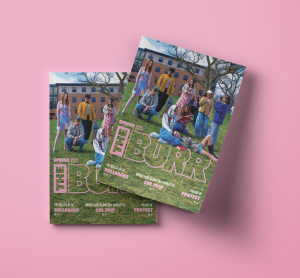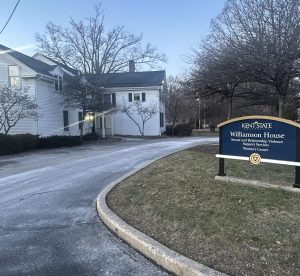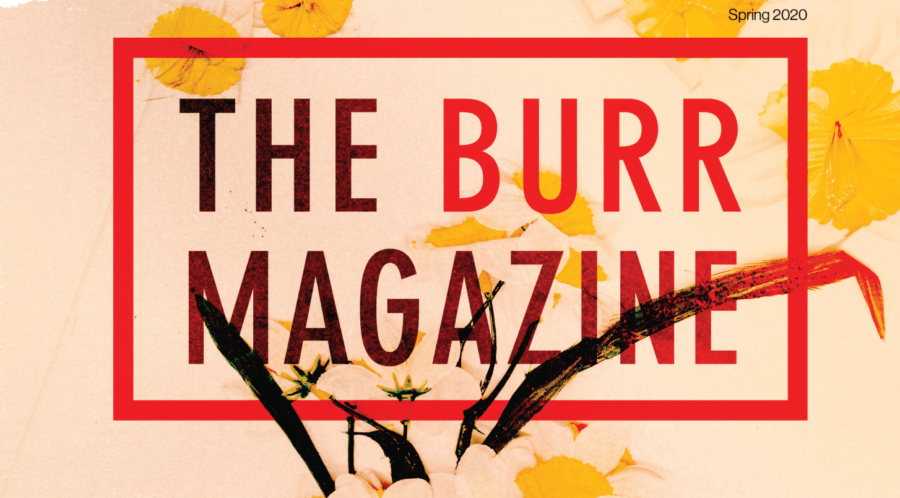Fifty years ago, four Kent State students died in a shooting initiated by the Ohio National Guard. This tragedy led to a large shift in the surrounding culture of Kent and rippled throughout the rest of the country. According to Ohio History Central, protests escalated on other college campuses following the shootings, and many of these universities closed as a result. Kent State students scrambled to understand how to adjust to this new campus, now marked by grief and shock that such a devastating event could happen at their school, prompted by the nation’s own military.
Kent’s History with Music:
In light of this difficult time, many students found solace through creative expression, specifically within the realm of music. New wave pop group DEVO formed their band in 1972, just two years after May 4, and the founding members were Kent State alumni who witnessed the shootings.
Bob Lewis, former student and one of the founding members of DEVO, stated in an interview for The Washington Post in 2018 that “May 4 derailed a lot of people from the track they were on, so they were looking around for alternative ways, and creativity is one of the ways you can keep your sanity.”
One of those people derailed from the events of May 4 was another founding DEVO member, Gerald Casale. In a speech he gave at Kent State on the 40th anniversary of the shootings, he explained his relationship with the victims.
“I could have been shot and killed,” Casale said. “I was closer to the gunfire than Jeffrey Miller or Allison Krause, freshmen students who I had befriended when I helped them register for fall classes at (Kent State) in the summer of 1969.”
Casale went on to describe the impact this event had on his life: “For many others, and myself, that single moment changed the dynamic of civil disobedience forever. It changed my worldview and without question set me on a path I would never have traveled otherwise.”
Although the shooting led many students to question the direction their generation was headed, Casale said he felt as though society was regressing long before the incident with the National Guard. This belief in the regression of society is where the band’s name originated. DEVO’s founding members were all witnesses to the tragedy and thus had a shared recognition of this “de-evolution” of American culture.
“When we first started DEVO, Jerry and Bob and I, we were artists who were working in a number of different media, and we were around for the shooting at Kent State, and it affected us… We were thinking, like, ‘What are we observing?’ and we decided we weren’t observing evolution, we were observing de-evolution, and so we decided to write music about that,” said Mark Mothersbaugh of DEVO in a biographical animation video by Google Play and California Sunday Magazine in 2015.
DEVO was not the only musical group to come from Kent State. Chrissie Hynde, lead singer of The Pretenders and former bandmate of Mothersbaugh, was also a witness to May 4. A 2018 article in The Washington Post states that Hynde was so troubled by the events of May 4 that she dropped out of school. According to Chrissie Hynde’s online biography on All Music, Hynde moved to London in 1973 and later formed The Pretenders in 1978. Their first single, a cover of The Kinks’ “Stop Your Sobbing,” marked the start of their success.
Kent’s music scene in the early ‘80s to mid-’90s
Following the emergence of DEVO and the rising stardom of Chrissie Hynde, Downtown Kent became the center of a thriving music scene that attracted a variety of artists. Jennifer O’Connell, who graduated from Kent State in 1988, remembers frequenting live music events downtown every weekend and sometimes on weekdays. At the time, she was seeing live performances of reggae bands like First Light, I-tal and her personal favorite, Irie.
“It was a pretty bustling scene, at least it seemed that way to me coming from Mentor, Ohio,” O’Connell says. She specifically recalls the venue Mother’s Junction as being one of her favorites, which was the upstairs section of Ray’s Place.
One night at Mother’s, her best friend and roommate, Lisa, got into some trouble with the band Irie: “I remember her stealing their tambourine and sticking it down…the front of her pants and then running down the steps…to the street and just hearing the jingle-jangle of the tambourine as we escaped.”
Along with her fond memories of seeing shows in Kent, O’Connell also attended the same school as Chrissie Hynde. In fact, one of her art professors had Hynde as a student and talked about her often. “I just remember thinking it was pretty cool…I had the same professor that Chrissie Hynde had,” O’Connell says.
O’Connell’s husband, Pat O’Connell, was a member of Bluesimus Maximus in the late ‘80s, when he came to Kent for a performance at the downtown bar, JB’s, in the upstairs section.
Pat is mostly known for his fame with Number One Cup, an indie rock band he joined after graduating from Ohio University in 1988. The band gained interest from well-known British DJ John Peel when they sent him their first single, “Connecticut.” Pat says Peel’s interest in the band is partly why they were offered a record deal with Fly Daddy Records. The label also saw the band’s potential with their second single, “Divebomb.” Number One Cup would go on to release three studio albums and tour all over the U.S. and Europe.
As a successful musician, Pat appreciates the other notable musicians that came from Northeast Ohio: “…I freaking love DEVO…they’re amazing,” he says. “I’m very proud to be from the same state as them. I think that band was just so unique and groundbreaking and I’ve always loved pretty much everything they’ve done.” Pat also referenced The Pretenders as another band he likes that erupted from the Ohio music scene.
As a student at Kent State in 1995, Joe Caroniti was very involved in Kent’s music scene. Whenever his friend Brent Walla would book a band to perform, Caroniti would be a part of the crew to help the band set up their gear and take it down after the show. This job gave him the opportunity to see a variety of live music, including The Pretenders.
On the 25th anniversary of May 4, Caroniti recounts a special performance by the ‘60s group Peter, Paul and Mary. He also recalls Mary Ann Vecchio coming to speak about the event at that commemoration; she is pictured in the famous TIME Magazine photo kneeling over victim Jeffrey Miller.
“They had a number of speakers…[Mary Ann Vecchio] came and that was the first time that she had returned back to campus since that happened…so that was really emotional to hear that…and then the second that the first shot rang out…Peter, Paul and Mary were there…and they performed Bob Dylan’s ‘Blowin’ in the Wind,’ so that was really cool,” Caroniti says.
Current Music Scene and Culture in Kent
Kent’s music scene has changed since the ‘90s, but it still attracts several local bands from the area, like Honeymoon, Elbow Room, Pearly and Recess. A major change has been the introduction of DIY venues, which are houses in Kent that hold live performances. The performers are usually indie and alternative bands from the area.
Zac Breitbach, guitarist of Honeymoon, mentioned a few venues in Kent where the band has played in the past such as the Workshop, but he says his perception of the music scene from the last time he was there was that it was on the decline. Breitbach graduated from Kent State in 2018 and formed the band with his friend Austyn Benyak, another Kent alumnus.
“I would definitely say music is for sure contributing to the culture of the alternative scene…,” Breitbach says. “But…there (haven’t) been a lot of places for newer or really different bands to play in Kent.”
Breitbach says that sometimes in Kent, it seems the audience is there for the atmosphere and the party rather than the music, which doesn’t typically happen at venues outside of a college town. “And it’s tough for us too because we’re loud,” he says. “We’re a loud rock band and people can’t talk while we’re playing.”
Austyn Benyak is also in another band, Pearly, with Josie Yeager. Benyak and Yeager also agree that the music scene in Kent has changed for alternative artists. For a while, they say, there were not as many opportunities to play in Kent as the number of DIY venues declined.
“There was a lot of houses that people had shows at, and then a lot of those people either stopped having shows because of noise complaints or they graduated and left,” Yeager says.
Although the scene was on the decline, Yeager speaks of a new wave of people trying to revive the Kent music scene and bring back these DIY venues.
Elbow Room, composed of Ben Scott, Scott Drazdik and Spencer Fetco, has played at multiple venues in Kent, including EuroGyro, The Dome and The Stone Tavern at Michel’s. They also played at FlashFest, an annual musical event at Kent State sponsored by Undergraduate Student Government, in 2019.
“On campus, the music scene can be a little limited just because live music venues aren’t readily available,” band member and Kent alumnus Scott Drazdik says. “The Rathskeller in the student center basement used to be an amazing spot for shows in the early 2000s. Lots of awesome bands played there like Man Overboard, Light Years, Balance and Composure, etc. It would be awesome if there could be an on campus spot for shows to open up again.”
On March 7, alternative-pop group Recess performed at Flashathon. According to Kent’s Center for Student Involvement, this event “… is a student-run philanthropic organization benefiting the Showers Family Center for Childhood Cancer and Blood Disorders at Akron Children’s Hospital.”
“We had an amazing time,” Anthony Fondale, keyboardist and lyricist of Recess, says. “The cause is amazing, the people were all very kind and helpful, the atmosphere was completely positive and we really appreciate being able to be a part of the event.”
Aside from events like Flashathon, Kent is also known for its annual Beatlefest at various venues downtown. Liz Gutbrod, a pediatric therapist and children’s yoga teacher in Northeast Ohio, has attended every year for the past three years and particularly enjoys seeing the band Revolution Pie.
“I mean the Beatles’ music is timeless,” Gutbrod says. “There’s something for everyone.”
Junior English major Domenic Cregan also attended Beatlefest this year. He says the band that played at Water Street Tavern tried to emulate the style of the Beatles with their outfits. One member had hair and glasses similar to John Lennon.
Aside from Beatlefest, Cregan says the music scene now is slow: “I do think the bars could be more inviting to live acts because I think live acts are…more exciting than just a DJ. And I think people respond to that.”
What about de-evolution today?
The concept DEVO proposed about a regressing society seems to resonate with the younger generation more than anyone else. “De-evolution” was created as a reaction to seeing May 4 and the tensions surrounding the Vietnam War. Today, the younger generation believes it is still prevalent, but in different contexts.
Josie Yeager of Pearly sees it with the reliance of technology. She says the violence and negativity seen today comes as a result of society “de-evolving into technology.”
Others, like Zac Breitbach and Zach George, a sophomore computer information systems major at Kent State, feel de-evolution within the realm of politics. Breitbach says Honeymoon often comments on the surrounding culture within their music as DEVO has popularly done.
“Our recent record has those themes of like, ‘What’s going on here, you know?’ Just like, ‘Stuff is going wrong, and what can we do?’” Breitbach says.
Zach George says the political backlash of our current administration is evidence for “de-evolution” as well. “In terms of politics…I would say…a lot of people disagree with Trump and he’s probably the most hated president right now,” he says. “I feel like a lot of people don’t really follow or like what’s going on right now with the country.”
Contrastly, Joe Caroniti and Pat O’Connell mainly appreciate DEVO for their ability to create art out of such a tragic event.
“You’re talking about… a group of avant-garde artists…that all got together and formed a band, there’s so much art involved in this…I mean, this is not just a garage band…it’s conceptual, you know? I mean it’s performance art… It’s a moving painting,” Caroniti says. He remembers being very anti-establishment and anti-authority growing up, but his perspective has changed as he’s gotten older, jokingly referring to himself as a “get-off-my-lawn” dad.
Pat O’Connell doesn’t agree with DEVO on a political level, but says, “If bands…use…concepts like that to invent music, great. It’s good for everyone because then we get good songs out of it, right?”
Fifty years after May 4, the artists that erupted in Northeast Ohio are still well-known and respected. Whether DEVO’s concept holds any truth is still subjective, but they have succeeded in proving the interrelatedness of music and culture. As Breitbach says about music and culture, “I don’t think you could have one without the other. It’s a very codependent relationship for sure.”
Kent’s music scene has adapted over the years as music tastes have evolved. As the artists from Honeymoon and Pearly have said, there are not as many opportunities for alternative and indie artists to perform in downtown venues. Indie and alternative music simply isn’t craved like it was in the past. Despite these changes with the music scene, Kent still has many venues that hold live performances and Kent State is a lively, thriving campus known for its inclusivity and community; that is one aspect of the city that will never change.
Kent does not have to be defined by May 4, but rather by the community’s response, which illustrates the ability of music to mold its surrounding culture and leave a lasting impact on its listeners.












